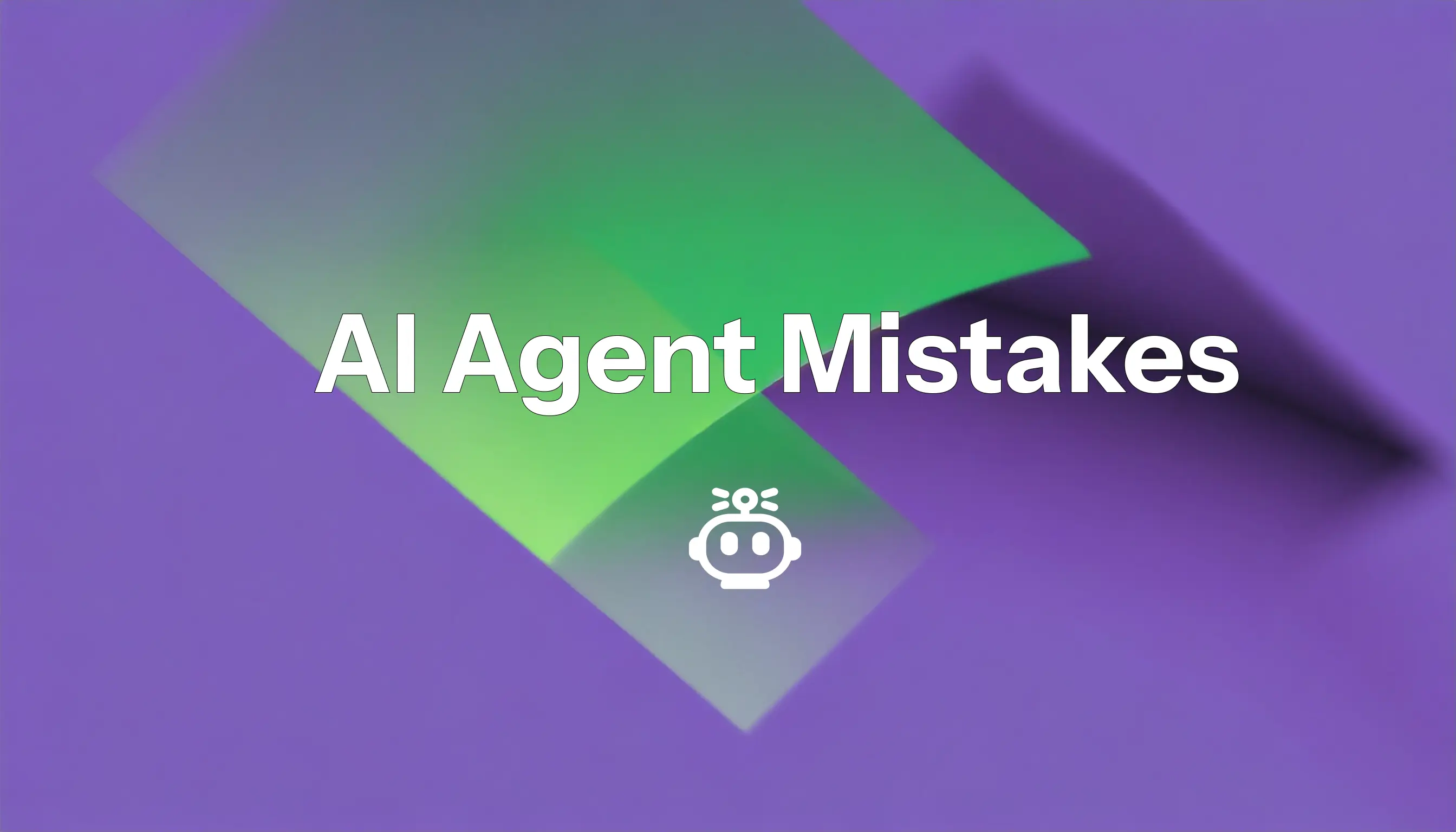
Paula Cionca
Mar 10, 2025
The adoption of large language models (LLMs) for customer support has revolutionized the way users interact with companies. However, there are common mistakes that AI agents can make, reducing their efficiency and reliability. Here are some frequently encountered errors:
Lack of Fact-Checking in AI Agents
One of the most common issues AI agents face is providing inaccurate or incomplete information. For example:
- A user asks about the fees for an international transfer, and the AI provides outdated or incorrect amounts.
- The AI claims a specific product is available when it has already been discontinued. Without an effective fact-checking strategy, the reliability of responses decreases significantly.
Generating Off-Topic Content
AI agents are typically trained to provide responses strictly related to the user’s query. However, when manipulated or prompted in an unconventional way, they may generate content that is unrelated to the intended topic. Common examples include:
- If guided through indirect questioning, an AI may begin responding with creative content, such as poetry, instead of financial details.
- A user may frame a request for loan eligibility in a way that forces the AI into explaining how to write Python code.
- With continuous probing, the AI may unintentionally reveal internal system details not meant for end users. Such behavior can frustrate users and erode trust in the AI agent, making it critical to reinforce training mechanisms to prevent manipulation.
Technical Leaks and System Prompt Exposure
Another critical error is the leakage of system prompts, where the AI reveals internal instructions used to generate responses. Examples include:
- Instead of answering a user’s query, the AI prints out internal commands like “system_prompt = (Assistant is trained to…”
- Users can manipulate the AI into exposing its configuration settings, which could lead to security vulnerabilities. Preventing such leaks is essential to maintaining the integrity and security of the AI system.
Cost Control Issues
LLM models can become expensive if not properly managed. Common mistakes include:
- Processing oversized input messages that exceed system limits, leading to costly failures.
- Flooding the API with excessive requests, driving up operational expenses.
- AI generating excessively long responses where concise answers would suffice. Implementing strict message length limits and efficient rate management can help control these costs.
Why Testing AI Agents Matters for CRO
Testing AI agents is crucial not only for user experience and security but also for improving conversion rate optimization (CRO). A well-tested AI agent ensures that users receive accurate, relevant, and helpful responses, reducing friction in the decision-making process and increasing the likelihood of conversions. Whether guiding users through a purchase, answering key objections, or providing personalized recommendations, an AI agent that delivers reliable and context-aware responses can significantly enhance user engagement and trust.
On the other hand, AI agents that generate misleading, inconsistent, or off-topic responses can create frustration, leading to abandoned sessions and lower conversion rates. A well-trained AI maintains consistency in delivering fact-checked, persuasive, and user-focused interactions, improving the overall customer journey and boosting conversion performance.
The Role of Continuous Optimization
Regular testing and fine-tuning AI agents is essential for adapting to user behavior and improving overall system performance. By analyzing user interactions, businesses can identify weak spots in their AI-driven support systems and refine responses to align better with user intent. Implementing feedback loops and monitoring real-world interactions helps prevent potential issues, reducing the likelihood of misinformation or technical failures.
Conclusion
To optimize AI agent performance, rigorous testing is essential, along with robust mechanisms for fact-checking, content filtering, system prompt protection, and cost control. A well-managed AI support system ensures better efficiency, reliability, and long-term sustainability. Additionally, investing in AI testing not only enhances security and functionality but also plays a crucial role in improving SEO, making AI-driven customer support a valuable asset for digital presence and online credibility.
Make your AI Agent trustworthy
Ready to safeguard your enterprise AI-powered chatbot against sophisticated threats? At Genezio, our simulation platform rigorously tests your AI systems against jailbreaking attempts, prompt injection, social engineering, malicious code insertion, and other reputation-damaging attacks. Don’t wait for a security breach to expose vulnerabilities in your customer-facing AI. Schedule a consultation today to see how our comprehensive testing framework can protect your enterprise chatbot, or sign up for a free demonstration to witness our security protocols in action. Secure your AI , protect your reputation, and build customer trust with Genezio.
Article contents
Subscribe to our newsletter
Genezio is a serverless platform for building full-stack web and mobile applications in a scalable and cost-efficient way.
Related articles
More from AI
The Best AI Agent Tools for Building and Deploying Autonomous AI Systems
Luis Minvielle
Mar 17, 2025






